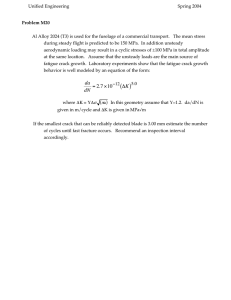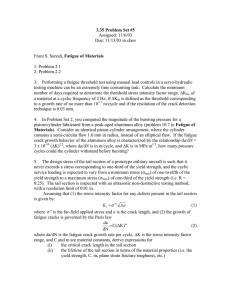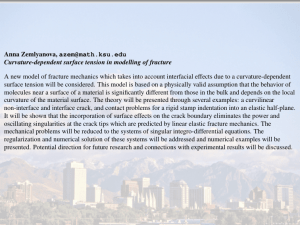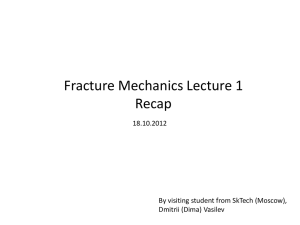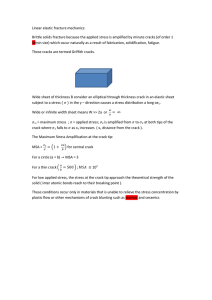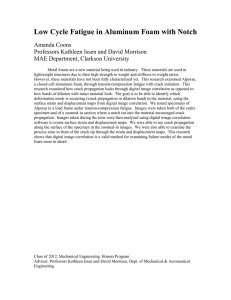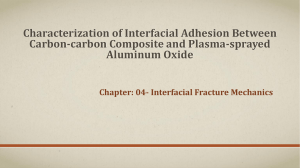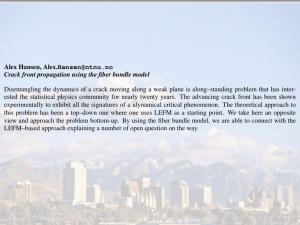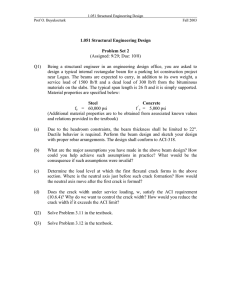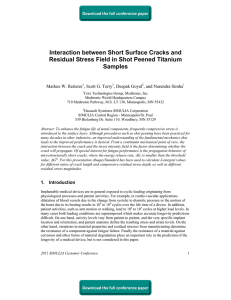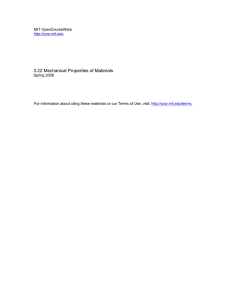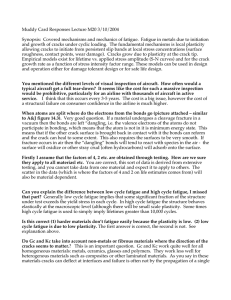Document 12700785
advertisement
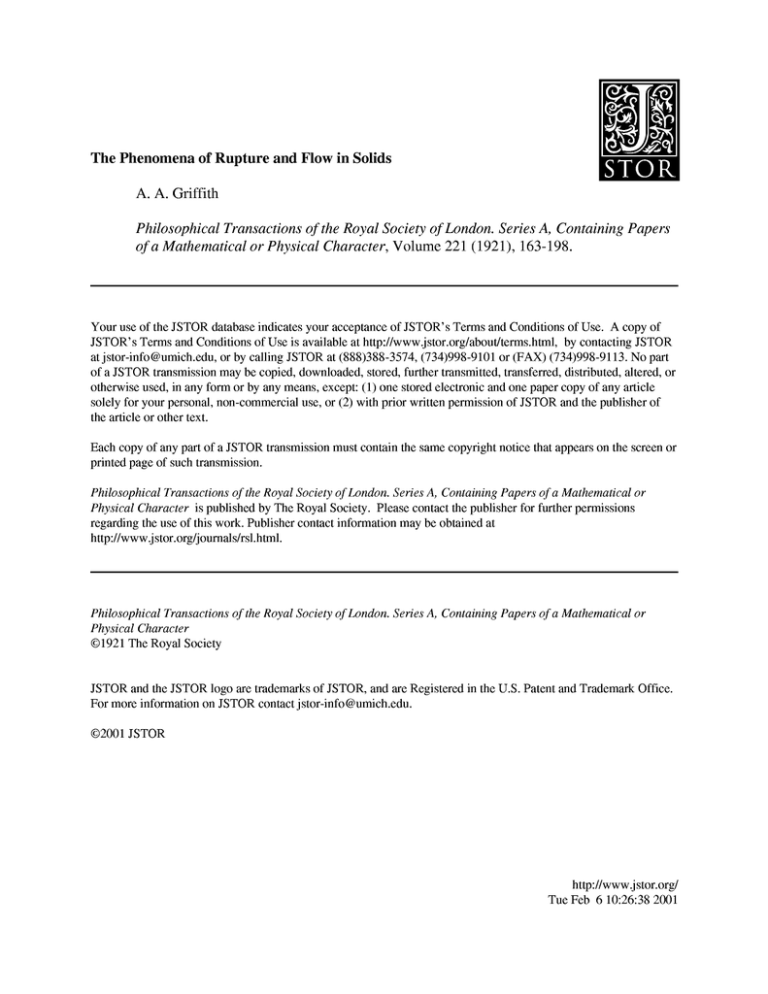
Fatigue will require a change in perspective. Regard energy release rate as a loading parameter. Paris. Thomas. How about atomically sharp flaw? Surface energy Work done against the cohesive forces on either side of the crack Traction-separation curve Poisson's ratio should not be in (13) Tubes and bulbs Poisson's ratio should not be in the expression. Using correct formula, the quantity is equal to 133 Inglis result Not sure this conclusion is sound Good questions When a large crack is introduced, small flaws do not affect the breaking stress. Use water to add load. Determine theoretical strength by extrapolating the breaking strengths of fibers of various diameters. Does this dependence agree with modern data? Does metal rupture by necking? Subcritical crack growth. Shattering and elastic wave Does it mean the flaw has increased in size in the first loading? Fatigue Fatigue of ductile metals. Scratches Elastic energy. Surface energy. Breaking stress is inversely proportional to the square root of the length of the crack
